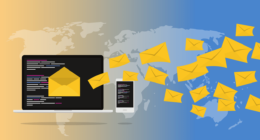AI is transforming businesses across industries by enhancing efficiency, improving decision-making, and creating new revenue streams. Here’s how real-world businesses are leveraging AI:
1. Automation & Operational Efficiency
- Manufacturing & Logistics: AI-powered robotics and predictive maintenance reduce downtime and optimize supply chains (e.g., Siemens, Amazon warehouses).
- Customer Service: Chatbots (like Zendesk’s Answer Bot) and virtual assistants (like ChatGPT in customer support) handle queries 24/7, reducing human workload.
- Retail & E-commerce: AI automates inventory management (Walmart, Alibaba) and checkout-free stores (Amazon Go).
2. Data-Driven Decision Making
- Finance & Banking: AI detects fraud (Mastercard’s Decision Intelligence), automates credit scoring (Upstart), and powers robo-advisors (Betterment).
- Healthcare: AI analyzes medical images (IBM Watson, Google DeepMind), predicts patient risks, and accelerates drug discovery (Moderna used AI for COVID-19 vaccine research).
- Marketing & Sales: AI-driven analytics (HubSpot, Salesforce Einstein) personalize campaigns and predict customer behavior.
3. Personalization & Customer Experience
- Streaming & Entertainment: Netflix & Spotify use AI to recommend content based on user preferences.
- E-commerce: Amazon and Shopify use AI for personalized product suggestions and dynamic pricing.
- Hospitality: Marriott and Hilton deploy AI chatbots for bookings and personalized guest experiences.
4. AI-Powered Product Innovation
- Automotive: Tesla’s self-driving AI and Waymo’s autonomous taxis rely on deep learning.
- Fashion & Design: Stitch Fix uses AI to recommend outfits, while Adidas employs generative AI for shoe design.
- Agriculture: John Deere’s AI-driven tractors optimize planting and harvesting.
5. Enhanced Cybersecurity & Risk Management
- Cybersecurity: Darktrace uses AI to detect and neutralize threats in real time.
- Insurance: Lemonade’s AI processes claims instantly, reducing fraud and wait times.
6. AI in Human Resources
- Recruitment: Tools like HireVue analyze video interviews to assess candidates.
- Employee Productivity: Microsoft Copilot and Notion AI assist with tasks, emails, and documentation.
Challenges & Considerations
- Ethics & Bias: Ensuring AI fairness (e.g., IBM’s AI ethics board).
- Job Displacement vs. Augmentation: AI replaces some roles but creates new ones (AI trainers, ethicists).
- Regulation & Compliance: GDPR (EU) and AI Act shape responsible AI use.
Future Trends
- Generative AI: ChatGPT, Midjourney, and Runway ML enable content creation, design, and prototyping.
- AI + IoT: Smart cities (like Singapore) optimize traffic and energy use.
- Quantum AI: Accelerating complex computations (Google, IBM).
Conclusion
Businesses adopting AI gain competitive advantages through cost savings, innovation, and superior customer experiences. However, success depends on strategic implementation, ethical considerations, and workforce adaptation.











